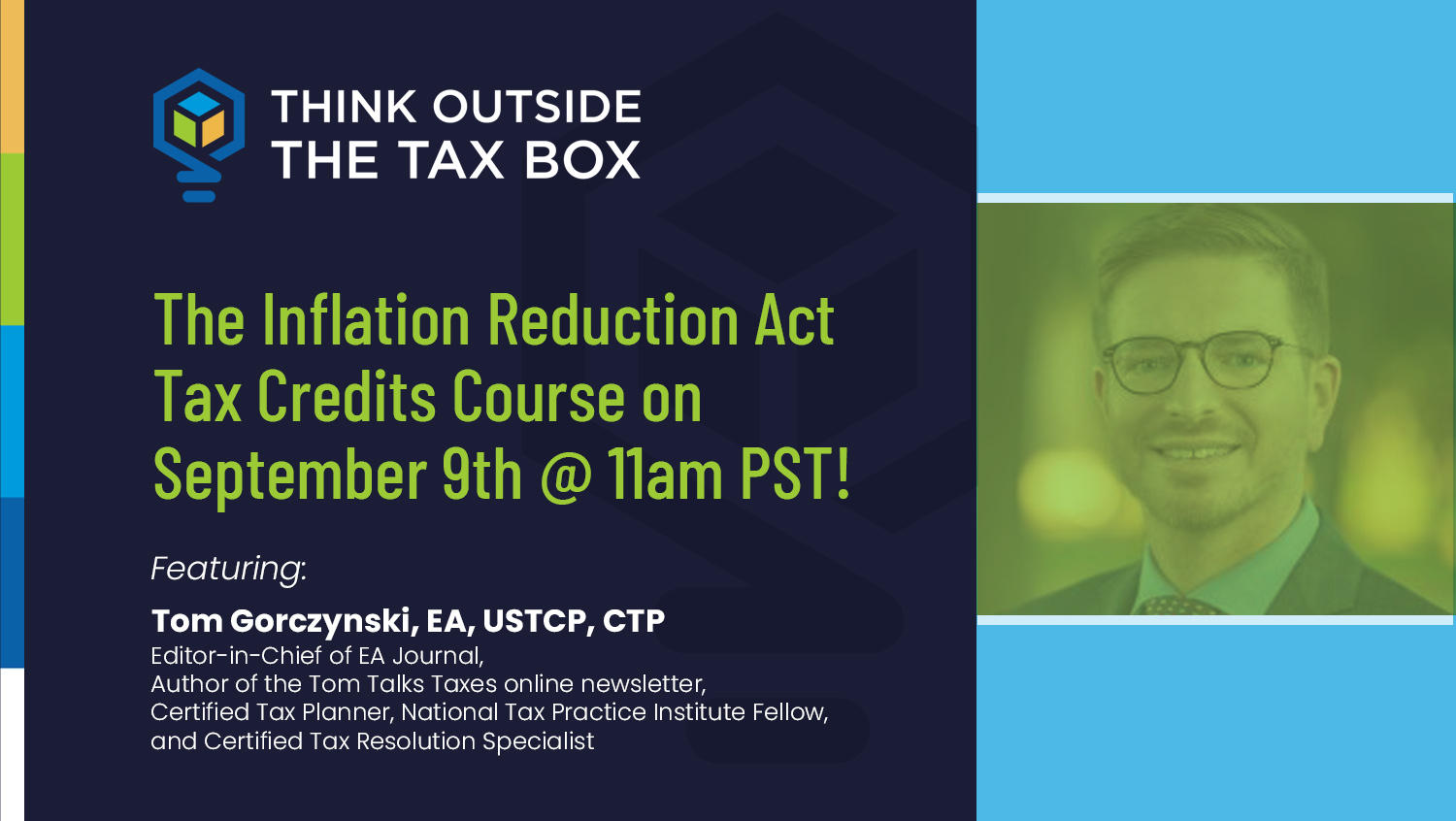LOOKING FOR LEGAL WAYS
TO REDUCE TAX?
New tax reduction strategies carefully explained and exhaustively researched every two weeks. Receive breaking news updates on tax law changes. Members only monthly AMA with TOTTB.tax.
WE PUBLISH TAX STRATEGIES FOR…
FEATURED CONTENT
The Inflation Reduction Act Tax Credits Course
The Inflation Reduction Act of 2022 expanded existing energy credits and created brand new ones. There are now several new ways tax professionals can help taxpayers save thousands of dollars a year by planning for these tax credits. In this webinar, we will cover the credits likely to be used by individuals and small businesses. We will also discuss tax planning considerations and areas in need of additional guidance.
Read MoreCURRENT EDITION

This Is The Only Other Year-End Tax Tip Guide You Need
So as I did last year, I have reviewed a multitude of year-end tax tips articles. One of them is a real standout that you should be sure to check out. If you missed it, you should definitely roll back to the November 15 edition and go over Dominique Molina’s piece, which focuses on what you need to do sooner rather than later in response to OBBBA. It provides more detailed, relevant, actionable advice that you won’t see anywhere else than any of the multitude of pieces I have reviewed. As for the rest, I will give you a basic rundown of what I call the SOSO (same old, same old) and a few suggestions that stand out as different that I will get into a little more along with some thoughts of my own.

The Corporate Vault: How to Use a C Corporation to Stockpile Cash for the Future
When most people think about saving for the future, their minds jump to retirement accounts—401(k)s, IRAs, maybe even defined benefit plans. But business owners have another option that often goes overlooked: using a C corporation as a strategic savings vehicle. By leveraging the flat 21% corporate tax rate, smart income shifting, and careful timing of distributions, business owners can “stockpile” cash inside a corporation, building wealth for future use without the red tape of traditional retirement plans. Want to see how top tax strategists legally use C corporations as private retirement vaults while avoiding double taxation and IRS scrutiny? Continue reading to learn the blueprint.

When TikTok Tax Hacks Backfire: Helping Clients Misled by Social Media Scams
Jessica, a self-employed consultant, was thrilled when she found a viral TikTok video promising a “little-known” tax trick. The video claimed she could get a huge refund by claiming a special Fuel Tax Credit and even writing off her family’s beach vacation as a business expense. Following the advice, Jessica filed an amended tax return and waited eagerly for a windfall. A few months later, instead of a refund check, Jessica received a stern IRS notice. Her so-called credits were disallowed, her refund was denied, and she now faced penalties. Jessica isn’t alone. Every tax season, well-intentioned taxpayers get lured by false tax advice on social media, only to end up in trouble. As tax professionals, we often meet panicked clients like Jessica who need our help to untangle the mess.
SIMPLIFIED TAX STRATEGIES &
PRACTICAL IMPLEMENTATION
Think Outside the Tax Box provides tax reduction strategies along with practical
implementation advice in order to reduce your clients’ federal tax bill with ease.







